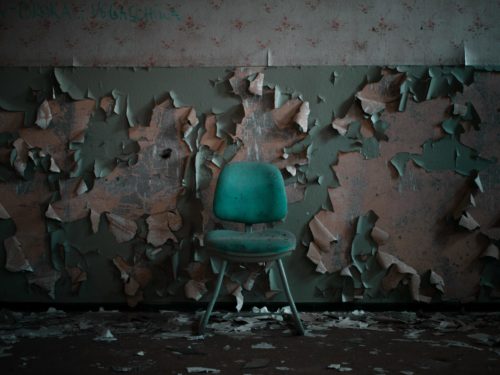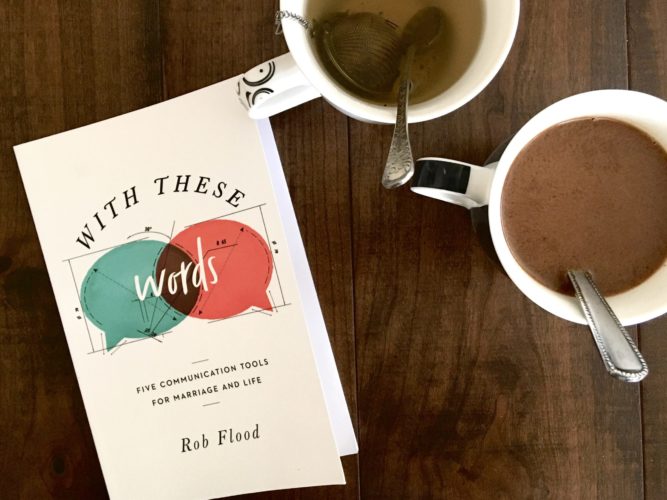The final report of the investigation into Ravi Zacharias was published, and it wasn’t good. In fact, it was scathing.
For many, this week, a hero fell.
I’ve been following this story since the accusations first came to light last fall. Ravi’s ministry had a great impact on my husband’s faith and a friend of mine was a speaker for RZIM.
Sadly, we’ve seen this all before. Too many times, actually.
In Ecclesiastes, it says, “What has been is what will be, and what has been done is what will be done, and there is nothing new under the sun.” {1:9 ESV}
Instances like this, where people abuse power and religion and trust, are not new.
And I’m sure there are a half a million blog posts and news articles out there now, detailing the allegations, analyzing the systems that enabled this, who did what wrong when and where and why and how did this happen and how we stop it.
Ravi’s ministry impacted millions of people. As his books are being pulled from print, his videos taken off the web, those lives are left blindsided, disenchanted, even hurt. He leaves behind victims in need of support, a legacy that is now crumbling, family and friends who are now grieving, and followers who are now bewildered.
But he isn’t the first and, sadly, he will not be the last.
The question we have to ask ourselves is how do we respond?
Not surprisingly, some of the initial public response to the accusations was to attack the accusers. I watched as people on Facebook rose up to defend a man they loved, admired, and respected.
These women were of the devil.
Why did they wait until after he died when he can’t defend himself?
What’s the point of coming forward now? Just to smear a man’s good name?
There’s no way Ravi could do this. He was too used of God. It’s all a lie.
When someone we love and trust is accused, it is natural, I think, for us to defend them. To some extent, in fiercely defending them, we are actually defending ourselves.
We want to believe that we are a better judge of character. There’s no way we would trust someone “like that.” There’s no way we would “miss that.” No, if they were a bad person, we would know. Someone would know.
We want to believe that upstanding people are, indeed, as upstanding as they are.
We want to trust that the youth pastor wouldn’t actually prey on one of the girls in youth group. When it comes out that he did, the majority reaction seems to be to figure out what she did to make him do that, because she had to do something.
We want to trust that the well-respected doctor wouldn’t take advantage of his patients. So, when a patient comes forward, we tell them they must be mistaken. They simply don’t know what they are talking about.
We want to trust that the founder of an international apologetics ministry would be incapable of sexual abuse and misconduct. We want to believe when he says he has been faithful to his wife. When allegations come to the contrary, we claw for a way to get them to go away. It’s extortion. It’s an attack of the devil. Even if it is true, it doesn’t matter now because he’s dead and not here to defend himself. He’s the real victim here. What’s the point of all this?
To this end, I greatly appreciate a recent article published by RZIM entitled “Why Make Public a Private Investigation?”
What’s the point? Truth.
It’s hard for us to want to admit things like this might be true because if they are true, then we have decisions to make. Hard decisions.
This isn’t unlike how children cope with sexual abuse and dysfunctional families. In his book Unwanted: How Sexual Brokenness Reveals Our Way to Healing, Jay Stringer talks about the concepts of honor and honesty. He shares that we’re often raised feeling like it’s one or the other.
A child shouldn’t mention the abuse his pastor father inflicts when drunk because it will dishonor his father. It would tear the church apart. It would leave the family homeless. The child would ruin everything.
A teenager shouldn’t mention her uncle molesting her. The family doesn’t need their name drug through the mud. She should just keep it quiet.
This idea of defending honor against honesty is one I feel many of us are raised in. How many of us had a knock-down drag-out screaming match on Sunday morning on the way to church only to slap on the happy faces, sing worship songs, and tell everyone we were fine once we got to service?
Social media didn’t introduce the idea of a filter. We’ve been “filtering” our lives long before the internet was ever a thing. Generations have worshiped image over authenticity. Generations have preferred perfection to brokenness.
The following is from Unwanted.
“A genuine mark of maturity is the ability to hold two simultaneous truths together at the same time.
The writers of Scripture recognized that honesty and honor should never be separated… Until you understand that honor and honesty are two sides of the same coin, you will likely be inclined to separate them.
What I have found in my story and with hundreds of men and women is that our desire to honor others is often a smoke screen that keeps us from entering heartache. It is a brilliant and tragic maneuver we have all learned to make. We swerve to protect others so that we do not have to face the implications of what their harm has brought.”
A smoke screen that keeps us from entering heartache.
But, when the truth comes out, we have no choice but to enter that heartache.
If your faith was greatly influenced by a fallen leader, that’s part of your story. There’s no undoing that.
Recognizing someone’s influence in your life does not endorse or support the wrong they have done. Cancel culture might remove their books and their videos, but there is no canceling the part they played in your own story.
The greater their impact on our lives, the more devastating the loss can seem. The more it causes us to question who we are, what we believe, and whether anyone is ever worth believing again.
“I’ve been living a lie.”
No, you haven’t been living a lie. The liar has been living a lie.
You are living in the tension of two truths.
To quote part of this article, “In other words, if Ravi Zacharias ever said anything true in his life, and of course he did, he was not its source but only its medium. Any truth – all truth – comes ultimately from God, outside of time or place or context. Even if delivered by the most sinful voices, truth is as eternal and unchanging as God Himself.”
While difficult, we can hold these truths in tandem: that very powerful, seemingly Godly people can impact our lives in profound ways and turn out to be guilty of grievous, wicked, even criminal acts.
It’s heartbreaking. Those two things shouldn’t be together. That’s why there is no pretty way to go about this process. It’s messy. It’s ugly. It’s painful, because it’s not supposed to be like this. But it is.
Somewhere, there is a pastor who stands in the pulpit every Sunday, preaches vehemently against pornography, and yet indulges in pornography every night. There is a worship leader who is having an affair. Somewhere, a youth pastor preying on the kids in youth group. A teacher at some school is a pedophile. There is a speaker, an artist, a musician who has a secret, even criminal life. You don’t know who it is, and you may never know who it is, but they’re out there.
Some day the truth will come out. When it does, everything that person touched will begin to rust and rot, because that’s what happens with earthly treasures. That’s what happens with sin.
And some would say, “That’s why you don’t say anything! You don’t want to destroy the good this person has done. This is why those women should have never come forward! Look at what they’re doing to God’s work.”
Make no mistake, it’s the sin doing that, not the truth.
It isn’t honesty that tears families apart, breaks down ministries, and destroys legacies. It’s sin.
We can’t turn blind eyes to sin, regardless of who is perpetrating it. Regardless of the position they hold, the influence they have, or who is depending on them or looking up to them. We serve a God of justice. Regardless of the effects of honesty, the effects on our own faith, or family, we are called to truth.
Is there grace? Absolutely. But grace and reconciliation come on the other side of repentance, not in defiance of it.
In moments like these, we are right to grieve. We grieve the devastation of sin. We grieve the pain caused in the lives of victims, the pain caused in the lives of friends and family who loved and trusted the perpetrator. We grieve the carnage of a legacy that is now turning to dust.
And we remember people don’t belong on pedestals: only God does.
No human being is above falling, and no one should be above accountability and a call to repentance. It’s far too easy for our heroes we admire to become idols we worship. When they fall, it leaves us bewildered and questioning, angry and even hopeless.
People, no matter how influential, should never be the authors of our faith. They can be signposts that point the way, but they are never the source. Ever.
In Hebrews 12:2, we’re encouraged
“ [looking away from all that will distract us and] focusing our eyes on Jesus, who is the Author and Perfecter of faith [the first incentive for our belief and the One who brings our faith to maturity], who for the joy [of accomplishing the goal] set before Him endured the cross, disregarding the shame, and sat down at the right hand of the throne of God [revealing His deity, His authority, and the completion of His work].” (AMP)
Our faith isn’t dependent on the character or life of our parents, our pastors, or even authors and musicians. And their character isn’t dependent on our ability to be silent and keep “filtering.” A person’s character is defined by their own actions. Our faith is defined by Christ.
I echo the words of Ann Voskamp and encourage you to read her whole post when you have time.
All celebrity has a responsibility to tear down pedestals,
And all of us have a responsibility to not build any pedestals…Celebrity has platforms to grow brands, Christianity has altars to come and die…
Don’t follow me.
Don’t follow anybody but the Perfect One who had to take on a body.
Don’t follow anybody made of flesh, because flesh will fail & fall.
Follow Jesus alone, who alone can save.
Update in September 2023: After the news of the Ravi Zacharias “scandal” broke, I found a blog written by his son. I think it offers a perspective worth reading, especially since Ravi is no longer here to defend himself. If we are interested in truth then it behooves us to hear “both sides” not just the side offered by what could be seen as a flawed investigation. You can read that blog here.






